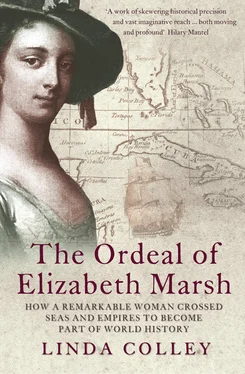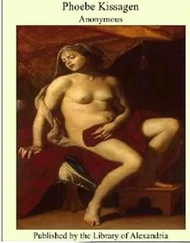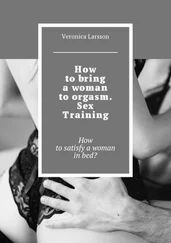In the process, Sidi Muhammad also became an actor in what in retrospect can be viewed as this period’s proto-globalization, a man preoccupied both with extending his influence in the Islamic world, of which he and Morocco were a part, and with developing and exploiting connections with widely different regions of the Christian West. Sidi Muhammad’s reign is a vivid reminder that, in the words of one historian: ‘proto-globalization was, in effect, a multi-centred phenomenon, strengthened by the active participation of Muslim elements’. As European and American diplomats will become increasingly aware, the Sultan is at one and the same time devoutly Muslim and interested in traditional scholarship, and in some respects a cosmopolitan, commercially driven and consciously innovative figure. ‘A man of great quickness of parts and discernment,’ the British Ambassador conceded in 1783, ‘… beloved much by his subjects.’ However, added this same writer, the Sultan possessed another marked characteristic: ‘his excess in women, in which he confines himself within no bounds’. 52
And so Elizabeth Marsh re-enters the story. After hearing the interpreter translate Sidi Muhammad’s formal declaration, she and the other weary hostages are dismissed and taken to a house in the mellah , the Jewish quarter of Marrakech, just to the east of the royal palace. Normally this is walled in on all sides, a segregated place with a single gate guarded by the Sultan’s soldiers. But the Lisbon earthquake and its aftershocks, which recur throughout her time in Morocco, and remind her with their noise of ‘a carriage going speedily over a rough pavement’, have reduced sections of the mellah and its walls to rubble. Although Jews in Morocco are generally allowed freedom of worship, and some play important commercial roles, and act as intermediaries in diplomatic encounters with European Christians, they are still marginal people, subject to mistreatment and punitive taxation. The largest in Morocco, the Marrakech mellah is essentially a ghetto for the disadvantaged, the home not just of the city’s Jewish population, but also of many of its European slaves. 53
Elizabeth takes in the dismal, half-ruined one-storey square building that is to be their prison, ‘its walls … covered with bugs, and as black as soot’, and chooses to have her tent pitched outside in its open courtyard. But there is no time to rest. Jaime Arvona, the acting Sultan’s high-level Menorcan slave and favourite, arrives with an order that she, but not the other hostages, is to be escorted to the palace. She goes with him through a succession of gates and gardens, and past a series of guards. As she draws nearer to the centre of the palace complex, she is instructed to take off her shoes because she is entering the domain of a prince of the blood, a descendant of the Prophet. Once inside, there are more rooms, and more guards, until finally there is ‘the apartment wherein His Imperial Highness was’. 54
Until now, Elizabeth Marsh’s ordeal in Morocco has been shared with others. Progressively more isolated in her own mind, she has in fact hardly ever been alone. Accordingly, a number of different individuals have been able to observe and report on her. Some of the other captives and several European merchants and envoys have written about her time in Sla and the journey to Marrakech. She has featured in official and private correspondence between British sea officers, politicians, diplomats and colonial officials. And she and the others have been the subject of formal diplomatic missives and proclamations by Sidi Muhammad himself, as well as detailed accounts by slaves and interpreters attached to his court. Individuals of no political weight or wealth, Elizabeth and her companions nevertheless leave an extensive and unusually diverse imprint on the archives. But once she enters barefoot through the gates of Sidi Muhammad’s palace, she becomes the sole chronicler of what happens there, a solitary voice. And her story will only be written down much later, when she is in another country, and subject to different influences and new pressures. 55
As she describes it, this first palace encounter is brief, an occasion at which she is carefully appraised perhaps, but unable to register much herself except the cool, richly clad individuals gazing curiously at her. Sidi Muhammad sits at his ease alongside four of his women, ‘who seemed as well pleased as he was himself at seeing me. Not that my appearance could prejudice them much in my favour.’ Elizabeth is self-conscious as well as frightened, aware of her sun-scorched face (or is this a deliberate assertion for her reading public that she is indeed pale-skinned?) and of her crumpled riding-dress, marked with sweat and sand from her journey. One of the women offers her, through an interpreter, some fresh Moroccan clothes. When Elizabeth declines, she takes ‘her bracelets off her arms; and put them on mine, declaring I would wear them for her sake’. Without much experience of jewellery, Elizabeth’s immediate, dazed reaction to these open-sided silver bangles is that they look like horseshoes. The rituals of hospitality over, she is dismissed:
But my conductor, instead of taking me to our lodgings, introduced me into another apartment, where I was soon followed by the Prince, who, having seated himself on a cushion, inquired concerning the reality of my marriage with my friend. This enquiry was entirely unexpected; but, though I positively affirmed, that I was really married, I could perceive he much doubted it … He likewise observed, that it was customary for the English wives to wear a wedding ring; which the slave [interpreter] informed me of, and I answered, that it was packed up, as I did not choose to travel with it. 56
At last the acting Sultan allows her to leave, giving her ‘assurances of his esteem and protection’. She is escorted back to the dim, mosquito-infested house in the mellah , but over the next two days her situation changes. As at Sla, the hostages are visited by some members of the European merchant community, who come to offer assistance. There is John Court, an intelligent and cultivated London-born merchant based at Agadir, who has travelled widely in sub-Saharan Africa, and has been summoned to Marrakech by Sidi Muhammad to act as an intermediary. His companion is an Irish trader called Andrews, from Asfi on Morocco’s Atlantic coast. Naïvely, Elizabeth Marsh confides to these two men both that her ‘marriage’ to James Crisp is only a pretence, and tells them something of her encounter in the palace. 57
Naïvely, because she is now doubly at risk. As Andrews warns her, there is a danger that some of Sidi Muhammad’s spies and slaves will hear gossip, or find evidence in her papers, that she has lied and is not in fact a married woman. She is also increasingly at risk among her own people. It has been over a month since their capture, and by now the other passengers from the Ann , Joseph Popham and his son, are noticeably going their own way: ‘We seldom had the pleasure to see our fellow-captives, as they found much more amusement in the company of the ship’s crew, than with my friend and myself.’ 58 Even thirteen years after the event, when she wrote these words, Elizabeth Marsh was unwilling to admit that it might not have been a search for amusement that kept the Pophams away from her and James Crisp, but disapproval and/or embarrassment. At the time of her Moroccan ordeal – for all her recent gloss of ladylike accomplishments – she was still firmly artisan in background, and used to the compromises of shipboard life. She may thus not fully have appreciated that her conduct had gone well beyond what conventional middle-class males like the Pophams would have seen as acceptable in a young unmarried woman. She had chosen to travel without a female chaperone. She had been obliged to sleep (or not sleep) in rooms alongside three men to whom she was not related. She had pretended to be first the sister, and subsequently the wife, of James Crisp. And now she had been escorted, without the others, to the palace of a Muslim prince. Whatever happened in the future, and however involuntary some of these actions had been, her reputation was under pressure.
Читать дальше












